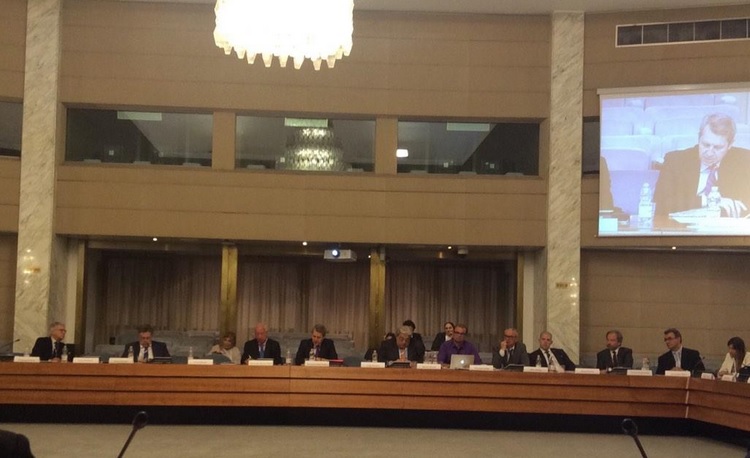10/10/2014

The KCSS Executive Director, Florian Qehaja, attended the conference on The Future and European Integration of the Western Balkans, organized by the NATO Defense College Foundation in cooperation with the Italian Presidency of the Council of the European Union and the Balkan Trust for Democracy. The conference was divided into four sessions and discussed four main topics such as: Regional Cooperation, The implementation of agreements reached between Kosovo and Serbia, NATO and European integration of the region as well as the unfinished business when dealing with the case of Bosnia and Herzegovina.
Invited to discuss on the topic “The Serbia-Kosovo Agreement: A turning point” were:
Anton Bebler President of the Euro-Atlantic Council of Slovenia, Ljubljana
Jelena Milic Director of the Center for Euro-Atlantic Studies, Belgrade
Denis Hadzovic Secretary General of the Center for Security Studies, Sarajevo
Florian Qehaja Executive Director of the Kosovar Center for Security Studies, Prishtina
While presenting on the topic related to the Serbia-Kosovo Agreement: A Turning Point, the Director of the KCSS focused his speech mainly on the Kosovo-Serbia agreement, emphasizing the lack of implementation of agreements reached. Nevertheless he pointed out the agreement on free movement of the citizens of Kosovo through airports in Serbia as a positive step. The biggest concern raised by Qehaja is the Kosovo’s lack of membership and inclusiveness in main regional security initiatives highlighting the obstacles that appear from Bosnia as a non-recognizing state, mostly driven by Serbia, in order to block Kosovo’s membership of these organizations. Mr. Qehaja pointed out that Kosovo’s membership in these organizations would contribute to overall regional security.